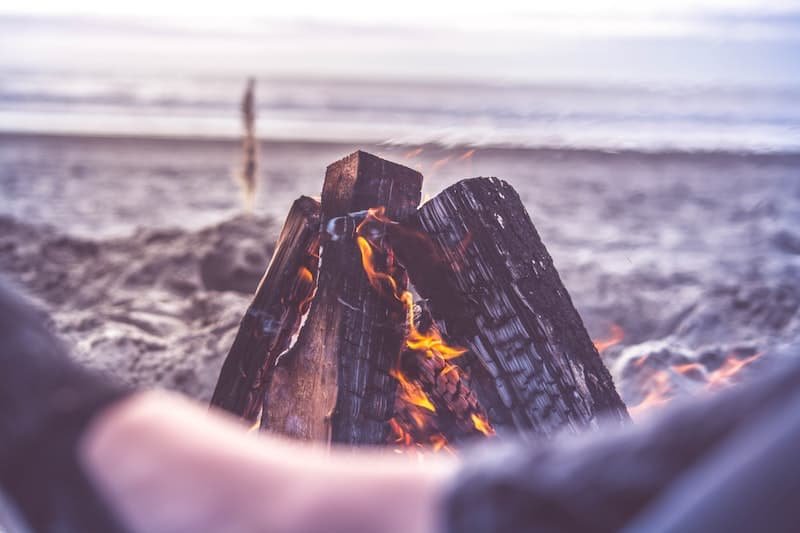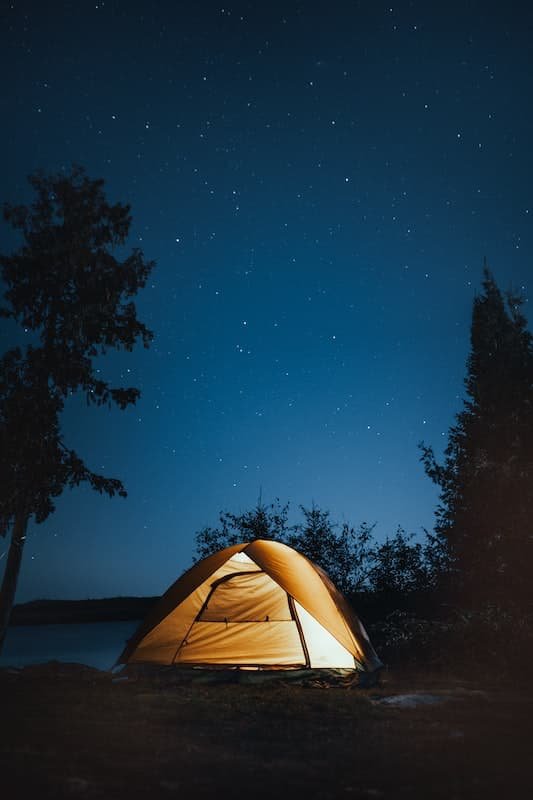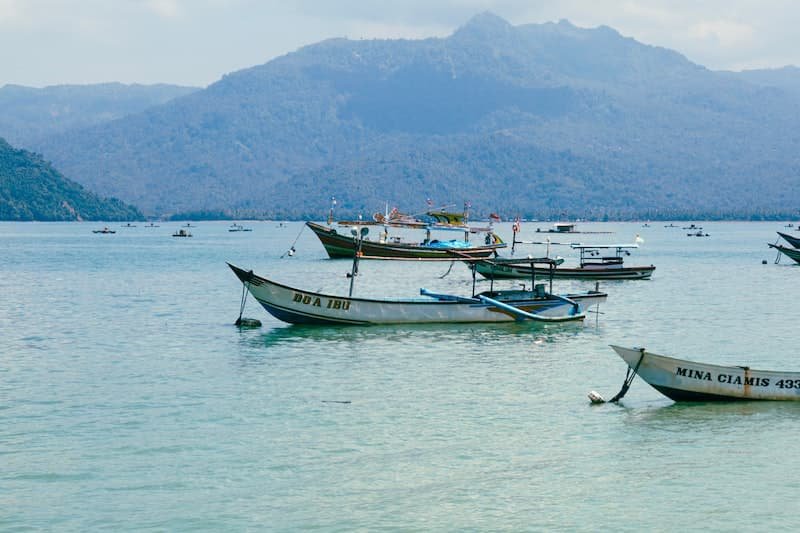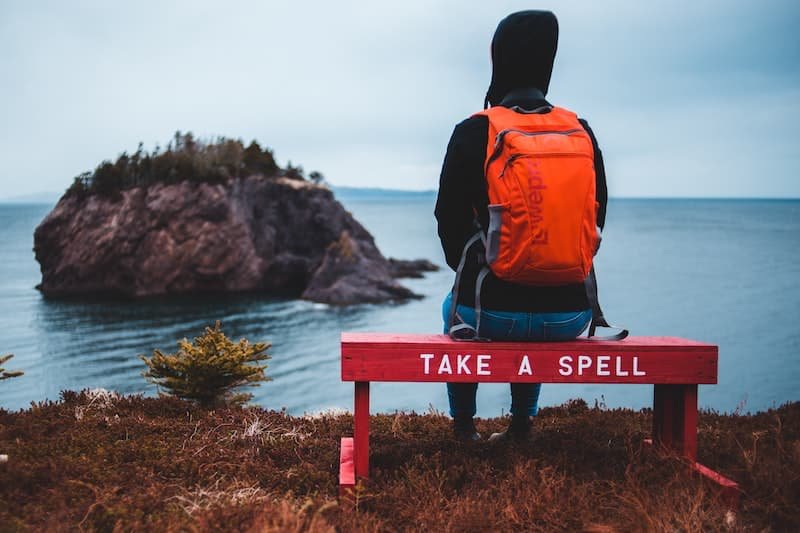
 Roni Essex
Freediver, Spearo, Creator
Roni Essex
Freediver, Spearo, Creator

 Roni Essex
Freediver, Spearo, Creator
Roni Essex
Freediver, Spearo, Creator
Island camping offers a unique and thrilling experience for outdoor enthusiasts. With sun-kissed beaches, pristine waters, and lush forests, it's the perfect summer getaway. However, to ensure a successful and enjoyable camping trip, proper preparation is essential. In this comprehensive guide, we will take you through the necessary steps to prepare for island camping, including choosing the right island, understanding the climate, packing essentials, safety precautions, setting up camp, cooking meals, staying hydrated, exploring the wonders of the island, and immersing yourself in nature. Get ready to embark on an unforgettable summer adventure in the great outdoors.
Islands are nature's treasures, brimming with diverse ecosystems and stunning landscapes. Research different islands to find the perfect camping destination that suits your interests. Consider factors such as accessibility, facilities, activities, and natural attractions. Look for islands with hiking trails, beaches, wildlife, and clear waters for snorkeling or diving. Each island has its own unique offerings, so take the time to explore your options and choose the one that resonates with your sense of adventure.
Before finalizing your island choice, delve into thorough research. Learn about the island's history, culture, and regulations. Consider the availability of campsites and permits, as some islands may require reservations. Consult travel websites, guidebooks, and online forums to gather information from experienced campers who have visited the island before. Look for reviews and recommendations to get a better understanding of what to expect. This research will help you make an informed decision and ensure that the island you choose aligns with your preferences and expectations.

The weather plays a crucial role in determining the success of your island camping trip. Familiarize yourself with the island's climate patterns and seasonal changes. Is it prone to sudden storms or heavy rainfall during certain months? Does it experience extreme heat or cold temperatures? Knowing the weather patterns will help you plan your trip accordingly. Check weather forecasts leading up to your departure and pack accordingly. Be prepared for sudden changes in weather and pack appropriate clothing and gear to stay comfortable in various conditions. It's always better to be over-prepared than under-prepared when it comes to weather.
Packing smartly is key to a successful camping adventure. Make a comprehensive checklist to ensure you don't forget any essential items. Include camping gear such as a tent, sleeping bags, sleeping pads, cooking equipment, and a first aid kit. Don't forget to pack appropriate clothing, insect repellent, sunscreen, and toiletries. Consider the island's specific requirements, such as special equipment for water activities or hiking gear for rugged terrains. It's essential to strike a balance between being prepared and not overpacking, as you'll need to carry your gear to and from the island.
When it comes to clothing, pack lightweight, breathable fabrics suitable for warm weather. Bring a mix of long and short-sleeved shirts, shorts, pants, a light jacket or sweater for cooler evenings, and a hat to protect yourself from the sun. Don't forget to bring sturdy and comfortable footwear for hiking and water activities.
In terms of camping equipment, invest in a high-quality tent that can withstand the island's weather conditions. Make sure it's easy to set up and has proper ventilation. A waterproof tarp or groundsheet is also useful to protect the bottom of your tent from moisture. For cooking, consider bringing a portable camping stove or grill, along with fuel and cooking utensils. Pack lightweight, non-perishable food items that are easy to prepare and store. Don't forget to bring a water filter or purification tablets to ensure a safe water supply during your camping trip.

Safety should be a top priority when camping on an island. Familiarize yourself with potential hazards such as wildlife encounters, extreme weather conditions, and navigation challenges. Research the island's wildlife and learn about any dangerous species that may inhabit the area. Understand how to safely interact with them or avoid them altogether. If the island has any poisonous plants or insects, educate yourself on how to identify and handle them. It's important to have a well-stocked first aid kit that includes bandages, antiseptic ointment, pain relievers, insect repellent, sunscreen, and any necessary medications. Additionally, consider bringing a basic survival kit with essentials such as a flashlight, compass, whistle, emergency blanket, and multi-tool. Pack extra batteries and keep your devices charged to stay connected and contact help if needed. Before heading out, inform someone trustworthy about your camping plans, including the island you're visiting, your expected duration of stay, and when you plan to return. Leave them with a detailed itinerary and make arrangements for periodic check-ins. This way, if you encounter any unexpected situations or delays, someone will be aware and able to assist you.
Choosing the right campsite is crucial for a comfortable and enjoyable experience. Look for a level, well-drained area that offers shade and protection from wind. Consider proximity to water sources and bathroom facilities. Clear the campsite of any debris and rocks, and set up your tent following the manufacturer's instructions. Ensure that your tent is securely staked down to withstand any potential strong winds. If you're allowed to have a campfire, choose a designated fire pit or a safe area away from any flammable materials. Follow any rules or restrictions regarding campfires and ensure that the fire is completely extinguished before leaving the campsite or going to sleep. It's essential to practice Leave No Trace principles when setting up camp. This means leaving the campsite as you found it, without leaving any trash or traces of your presence. Respect the island's ecosystems and ensure that you're not damaging any vegetation or disturbing wildlife habitats.

One of the joys of camping is cooking delicious meals over a campfire. Plan your meals in advance and pack non-perishable food items. Consider easy-to-prepare meals that require minimal cooking equipment and cleanup. Foil packet recipes are a popular choice, as you can wrap ingredients in foil and cook them over the campfire. Grilled skewers and one-pot meals are also great options. If the island permits, bring a camping stove or portable grill to expand your cooking options. Ensure you have enough fuel to last throughout your camping trip. Don't forget essential cooking utensils such as pots, pans, spatulas, and a can opener. Store your food properly to prevent any unwanted visits from wildlife. Remember to follow any fire regulations and be mindful of fire safety when cooking over a campfire. Always keep a safe distance between the flames and your cooking area. Extinguish the fire completely after cooking and never leave it unattended.
Water activities are a highlight of island camping. Ensure you have an ample supply of drinking water to stay hydrated throughout your trip. Depending on the island, you may need to bring your own water or have access to a freshwater source. Carry reusable water bottles and refill them as needed. If the island allows, explore snorkeling, swimming, kayaking, or paddleboarding in the crystal-clear waters. Before engaging in any water activities, ensure you have the necessary equipment and safety gear. Pack appropriate gear such as snorkels, masks, fins, life jackets, and waterproof bags for your belongings. Respect the marine environment and follow any guidelines or restrictions to preserve the island's natural beauty. Be mindful of any currents or tides and only venture into the water if you're a confident swimmer or have proper supervision.

Islands often offer a range of hiking trails that lead to breathtaking viewpoints, hidden beaches, and unique natural formations. Research the available trails and select ones that suit your fitness level and interests. Obtain maps or trail guides and familiarize yourself with the routes and any safety considerations. When hiking, wear sturdy and comfortable footwear that provides good traction. Dress in layers to accommodate changing temperatures. Carry a backpack with essentials such as water, snacks, a hat, sunscreen, insect repellent, a map, a compass, and a first aid kit. Let someone know your hiking plans, including the trail you're taking and your estimated return time. Respect the environment and adhere to any regulations or guidelines, such as staying on designated trails and not disturbing wildlife or plant life. Leave no trace by carrying out any trash and refrain from littering.
Island camping during the summer is a remarkable adventure that allows you to immerse yourself in nature's wonders. By choosing the right island, understanding the climate, packing wisely, prioritizing safety, setting up camp strategically, enjoying campfire cooking, exploring water activities, and embracing island exploration, you'll create memories to last a lifetime. Remember to respect the island's ecosystems, follow regulations, and leave no trace. With thorough preparation, you're ready to embark on an unforgettable island camping experience that will leave you refreshed, rejuvenated, and connected to the natural world. Embrace the beauty and serenity of island camping and enjoy the summer in the great outdoors.